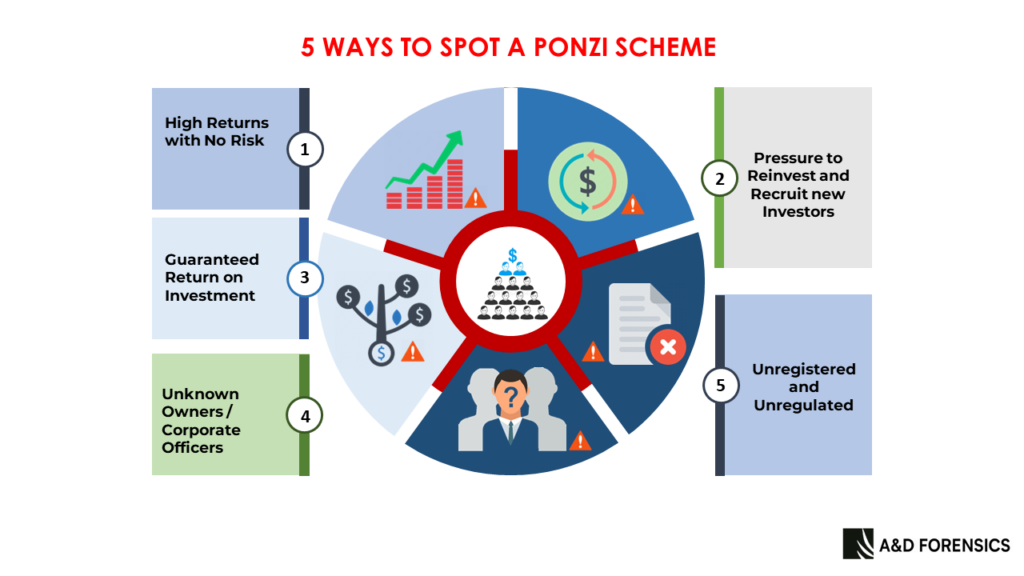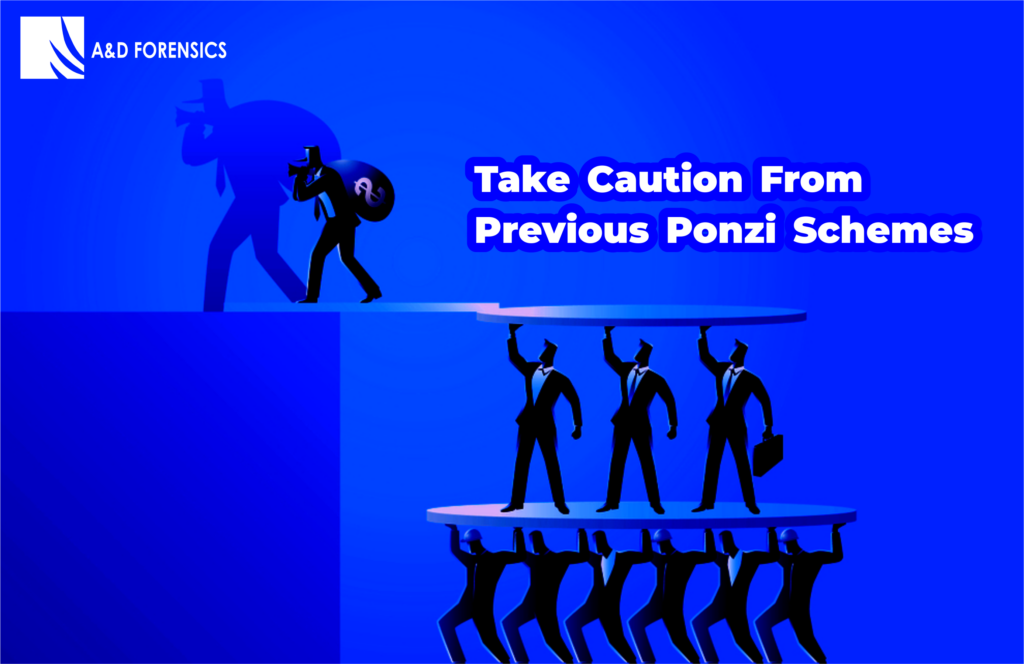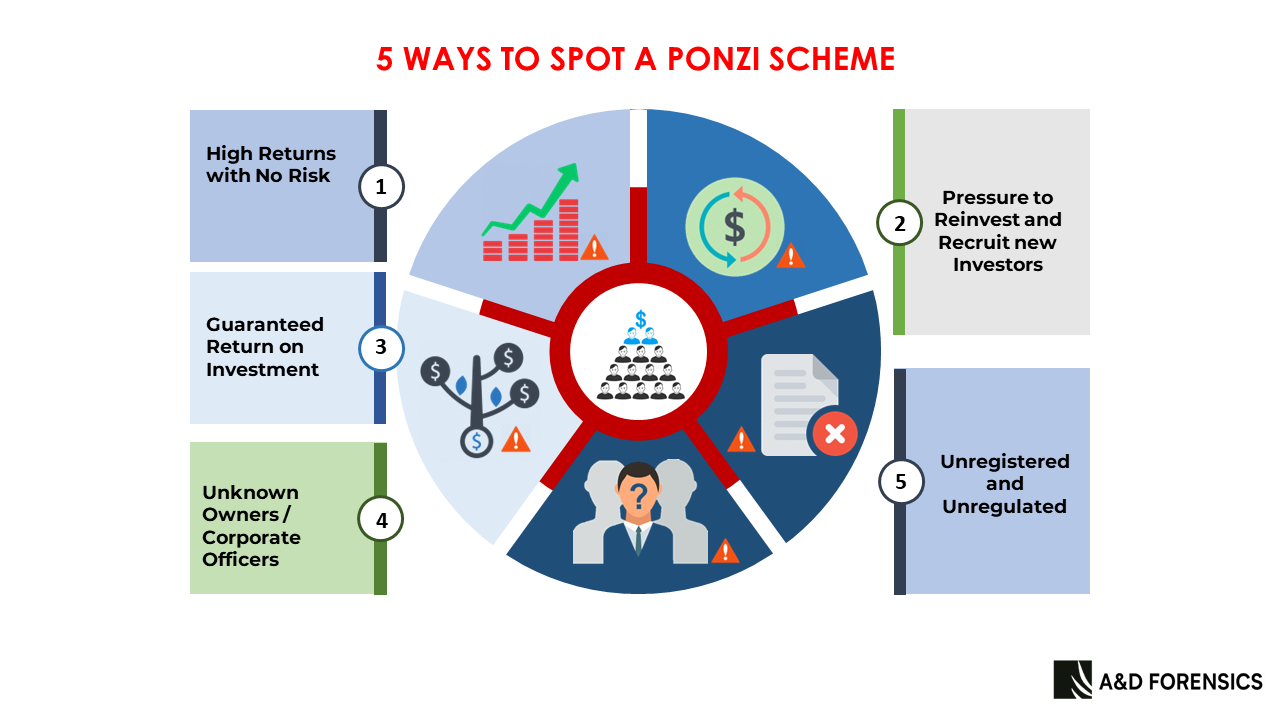A growing number of Ponzi schemes are actively targeting investors in Africa, particularly in Nigeria and South Africa. These Ponzi Schemes often involve cryptocurrencies. Thus, it becomes imperative to learn how to spot these investment scams as they innovate daily.
What is a Ponzi Scheme?

Ponzi schemes are financial frauds that use money or cryptocurrencies obtained from new investors to pay off old investors. Ponzi scheme operators frequently make the claim that they will invest your money and produce large returns with little to no risk. However, in Ponzi schemes, the scammers rarely invest the money. Instead, they pay individuals who made earlier investments while also possibly keeping part for themselves. This is comparable to a pyramid scam in that both depend on new investors’ money being used to reimburse the earlier funders.
When the influx of new investors stops, and there isn’t enough money to go around, Ponzi schemes finally hit their bottom. Thus, the plans then start to fall apart. More also, Ponzi schemes depend on a steady stream of new investments to keep giving older investors profits. The plan fails when this flow is exhausted.
In Nigeria, the sordid history of ponzi scheme scams can be traced back to wonder banks such as UmanaUmana and Planwell that held sway in the eighties and nineties. A watershed period was 2015 to 2017, due to a recession in the economy. Nigeria witnessed a huge proliferation of Ponzi schemes with the most notable being MMM – Mavrodi Mondial Moneybox. The eventual collapse of MMM in late 2016 came at a huge cost as the Nigerian Deposit Insurance Corporation estimated that 3 million Nigerians lost about 18 billion naira.
5 Ways to Spot a Ponzi Scheme

Here are 5 Simple Ways to Spot a Ponzi Scheme
- High Returns with No Risk
Risk exists with every investment to some extent. It’s crucial to remember that investments with higher returns carry more risk. As a result, any assurance that an investment would provide substantial returns with little risk, independent of general market conditions, is a red flag that you might be dealing with a Ponzi scheme.
- The Promise of Guaranteed Returns on Investment
Ponzi schemes frequently use the promise of “guaranteed profits” to entice victims, successfully appealing to their desire to increase their initial investment. Therefore, you should be wary of any investment plan that promises you a return on your money. Since governments have abundant resources at their disposal, only financial instruments and assets held by them carry little to no risk, but they seldom yield big returns.
- Unknown Owners/Corporate Officers
A lack of information regarding the owners or corporate officers is always cause for concern. This is because reputable businesses frequently disclose who their owners and corporate executives are, whereas fraudsters keep this information secret since they don’t want to leave a trace after stealing investors’ money.
- Unregistered and Unregulated
The collecting of funds from an investor with a promise to pay dividends on the capital is an activity that falls under the authority of several regulators. For instance, in Nigeria such Regulators includes the Corporate Affairs Commission (CAC), The Central Bank of Nigeria (CBN) and the Securities and Exchange Commission (SEC). Consequently, operators of such schemes must be duly registered and regulated. Ponzi schemes and their operators are often unregistered and unregulated.
- Pressure to Reinvest and Recruit New Investors
In order to maintain the money in the system and prevent a collapse, ponzi schemes often put pressure on investors to reinvest their winnings. Additionally, there is a focus on enticing new investors with the promise of greater returns for each new investor attracted; this is done since the Ponzi scheme can only continue to operate if money is coming in faster than it is going out.
How Ponzi Schemes Gain Trust of its Victims
A few of the ways through which Ponzi schemers win their victims’ trust are listed below.
- Using Documentation to Support a False Narrative
When claiming to be genuine, regulated, or in the process of becoming so, Ponzi operators frequently slap incorporation documents on their business. Be aware that, while beneficial, incorporation does not guarantee that a business or scheme is lawful. Additionally, the statutory regulating body’s endorsement of the plan is required. The Securities and Exchange Commission is what we would call that in Nigeria.
- Paying Promised Profits with Funds from New Investors
Ponzi schemes always seek to recover as much money as they can from earlier investors so that they can act as effective word-of-mouth and referral marketing. The Ponzi scheme maintains a veneer of respectability by repaying former investors with monies from new investors, deflecting attention away from its hazy economic model.
- Secrecy and Exclusivity
Knowing that it is impossible to verify all the information, Ponzi schemers frequently use half-truths to woo investors. They then persuade their victims by claiming that some information must be kept a secret because it pertains to “company secrets.” To screen out anybody who would query their claims or request proof, they can also assert that the deal is exclusive.
Take Caution from Previous Ponzi Schemes

As a Cryptocurrency user, you need to take caution from previous Ponzi schemes to avert being a victim. Over 279 billion naira was reported lost in Nigeria to ponzi schemes like Racksterli investment, MBA trading and capital investment, Wales Kingdom Capital Limited, Crime Alert Security Network Investment, MyBONUS, OBA Forex Global Trading, Imagine Global Solutions Limited, Provest Hub, Baraza Multipurpose Cooperative Society, SU Global, among others in 2021.
Similarly, the South Africa’s financial regulator reported a loss of 3.6 billion USD to bitcoin fraud at Africript. Also, The world’s biggest crypto scam in 2020 was perpetrated in South Africa by Mirror Trading International. Using a Ponzi scheme, hundreds of thousands of victims were swindled out of US$588 million in Bitcoin. SABRIC, the South African Banking Risk Information Centre, urges consumers to be sceptical of any investment that seems too good to be true, to prevent being deceived by so-called investments that promise quick, high and guaranteed returns.
In Kenya, Waihiga Mwaura, a journalist reports that the latest scam to be unearthed in Kenya was around the app named Amazon Web Worker Africa, which claimed to be an affiliate of Amazon Inc and was accessible via a mobile and web application.
Conclusion
Ponzi schemes are adopting new ways of enticing their intended victims with captivating and acclaimed profitable investments. As an investor, whether cryptocurrencies or fiat currencies, ensure you carry out Due Diligence before investing your money on any platform or asset. If you become a victim of Ponzi Schemes involving Cryptocurrencies, you can report here
Furthermore, stay abreast with A&D Forensics news briefs to get weekly updates on crime & regulatory news. This will help you learn about new schemes and tactics prevalent within the time to avoid becoming a victim. You can also Contact us for any of our services.
Contributor: Emmanuel Bassey






